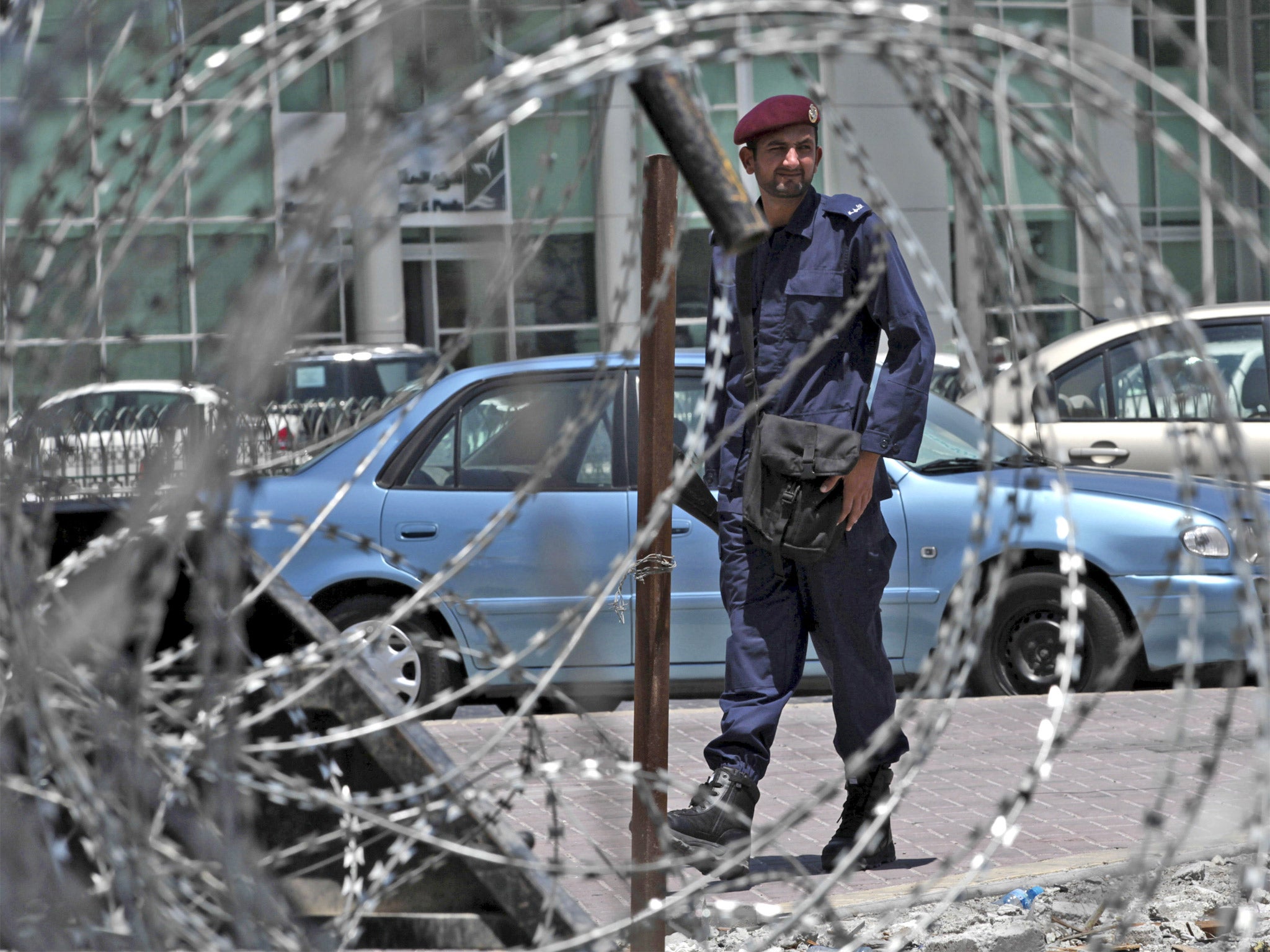Journalists arrested in Bahrain as Shia population protests its Sunni monarchy
Authorities in bid to prevent reporting of mass protests demanding democratic rights in the island kingdom

Your support helps us to tell the story
From reproductive rights to climate change to Big Tech, The Independent is on the ground when the story is developing. Whether it's investigating the financials of Elon Musk's pro-Trump PAC or producing our latest documentary, 'The A Word', which shines a light on the American women fighting for reproductive rights, we know how important it is to parse out the facts from the messaging.
At such a critical moment in US history, we need reporters on the ground. Your donation allows us to keep sending journalists to speak to both sides of the story.
The Independent is trusted by Americans across the entire political spectrum. And unlike many other quality news outlets, we choose not to lock Americans out of our reporting and analysis with paywalls. We believe quality journalism should be available to everyone, paid for by those who can afford it.
Your support makes all the difference.Journalists in Bahrain are being arrested and mistreated in a bid to prevent reporting of mass protests today demanding democratic rights in the island kingdom where the majority of the population is Shia but absolute power is in the hands of the Sunni monarchy.
In a further sign of nervousness on the part of authorities in Bahrain ahead of the protests, the country’s prime minister issued an ominous warning in an apparent attempt to deter protesters from taking to the streets.
“The government will forcefully confront suspect calls to violate law and order and those who stand behind them through decisive measures,” Sheikh Khalifa bin Salman Al Khalifa was quoted by the official Bahrain news agency as saying.
The warning comes just days after a Royal decree was issued that outlawed the holding of demonstrations and sit-ins in the capital Manama. The decree also introduced a new law that would impose penalties on parents who allow their children to take part in protests.
Bahrain saw giant demonstrations during the Arab Spring of 2011, but these were brutally crushed by the security forces aided by the armed intervention of 1,500 troops from Saudi Arabia and other Gulf monarchies. A report commissioned by the Bahraini government itself revealed that there had been unlawful killings and widespread torture by the Bahraini security forces.
Tension is increasing again as the security forces focus on detaining print journalists, cameramen, photographers and bloggers in the run up to today’s “Tamarrod” (“rebellion” in Arabic) protests, which are modelled on those in Egypt that led to the overthrow of President Mohammed Morsi on 3 July.
“The authorities plan to impose a news blackout on the 14 August demonstration,” says the Paris-based Reporters without Borders, a lobbying group seeking to protect journalists, adding that the authorities “have no hesitation about arbitrarily arresting news providers and denying them access to lawyers.” At least one foreign journalist has been prevented from boarding a plane to Bahrain.
Blogger Mohammed Hassan was arrested at his home at 2am on 31 July and taken to El-Hod El-Gaf prison at the same time as photographer Hussain Hubail was detained as he was about to leave Manama international airport. They have been charged with being members of the 14th February media network, calling for participation in an illegal demonstration and being in contact with members of the Bahraini opposition in exile.
A sign of a harsher attitude by the government is the increasing number of allegations of torture, which had diminished after the publication of the Bassiouni report in November 2011. Reporters Without Borders says that Mr Hassan alleges he was tortured during his detention, with mistreatment including beatings to the back, lower abdomen and hands. He says he was given electric shocks and forced to sign documents which he had not read. Mr Hubail, a freelance photographer who has worked for Agence France-Presse and Voice of America, says he was compelled to remain standing for three days without rest while being punched and kicked.
The harsher actions of the Bahraini security forces may be because repression on the island over the last two-and-a-half years has failed to prevent nightly protests in Shia villages. Sectarian animosities between the Shia and Sunni are acute.
The crushing of peaceful protests demanding democratic rights in Bahrain has caused some embarrassment to the US and Britain which were so vocal in denouncing similar repression in Syria and Libya. By contrast, criticism from Washington and London of the persecution of dissidents in Bahrain has been so mild as to reassure the government that they support its continuation in power.
A spokeswoman for the Bahraini embassy in London said: "The Government of the Kingdom of Bahrain has a zero tolerance policy for torture and takes any allegations in this regard very seriously. There are no journalists that are in detention for violating the press law in Bahrain."
Join our commenting forum
Join thought-provoking conversations, follow other Independent readers and see their replies
Comments